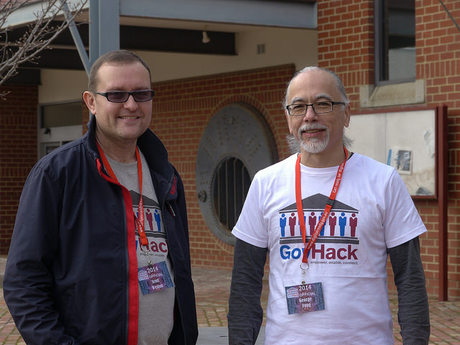WA government releases Open Data Policy

The Western Australian government has used the government-sponsored GovHack 2015 to release the state's new Open Data Policy.
Western Australia's first whole-of-government open data policy aims to improve the management and use of public sector data to deliver value to all the state's residents.
As part of the move, all state agencies will move towards an open by default data policy. The government will also seek to release high-value datasets to the public in easily discoverable and usable ways.
The government has set up a public website that will provide one-stop access to troves of government data.
The website includes a link to the full Open Data Policy, as well as checklists and guidelines for departments to help identify and prepare datasets for release.
Announcing the new policy, WA Premier and Science Minister Colin Barnett said the move is expected to create new opportunities for local businesses.
“WA has a proud history of competing internationally by building on our resources. To help maintain this competitive edge, the state government is supporting innovation and technological development,” he said.
“I am confident that WA entrepreneurs will use these datasets to create new products, services and business opportunities, and we welcome public input about data access priorities.”
GovHack 2015 is an annual nationwide competition to use government datasets to help build innovative applications and services for citizens. The 46-hour competition was this year held in 25 Australian locations, including Perth, in every state and territory apart from the Northern Territory. For the first time six locations in New Zealand also participated.
Participants spent last weekend developing projects including a game designed to encourage the use of solar power, a tool to measure, analyse and compare carbon emissions for household devices and an interactive map of national Indigenous stories.
Governments in participating states provided the data for the hackers involved in the competition to work with. The Tasmanian government, for example, revealed that it had made more than 70 datasets available covering a range of subjects including history, property boundaries and transport information.
Over 2000 people participated in the competition. Judges will pick winning entries and national winners will be recognised during an awards ceremony on the 5th of September. The national awards include six categories — best digital transformation hack, best open government data hack, best science hack, best policy insights hack, best data journalism hack and best entrepreneurial hack.
Winners in each category will take home a $4000 prize, with two runners-up receiving $2000 apiece. There are also international categories, and state or city specific prizes.
Some projects from previous GovHack competitions have been adopted by government agencies. For example, the Open Budget project, a winning entry from 2012, was used to help visualise the 2014 federal Budget. During last year's GovHack, the People's Choice Award was handed to What Grows Here, a project to help gardeners and businesses select plants that suit their space and needs.
Four ways AI can finally make threat intelligence useful and not just noisy
Done poorly, threat intelligence is noise. But done well, it becomes one of the most powerful...
Australia’s top tech priorities for 2026
It is anticipated that AI will evolve from a pilot project to a productive standard, underpinned...
Why AI's longevity lies in utility, not novelty
The real potential of AI is in underpinning the invisible systems powering everyday business.



